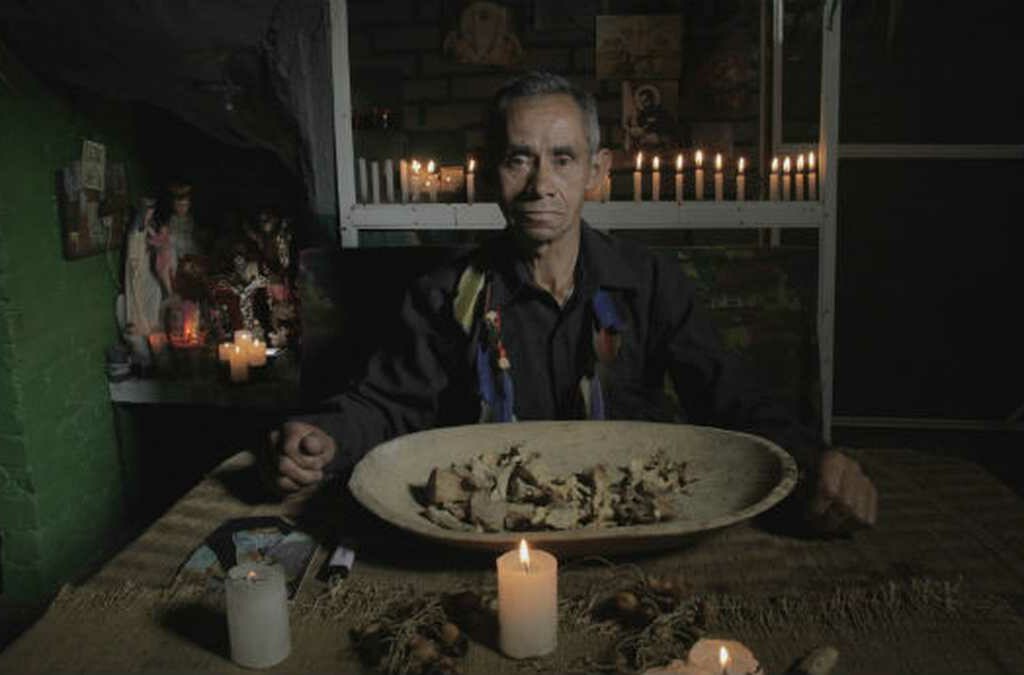Did you know that witchcraft played a crucial role in the Colombian war? From protection rituals to dark spells designed to demoralize the enemy, black magic was a strategic tool used by both guerrilla fighters and paramilitary groups. Discover how these rituals transformed the battlefield and affected combatants and civilians alike, creating an atmosphere of fear and superstition.
Black Magic Rituals in the Colombian Guerrilla
The war in Colombia has been marked not only by armed violence but also by esoteric practices and black magic rituals. Guerrilla and paramilitary groups have turned to witchcraft as a means to gain an advantage on the battlefield.
Rituals like “closing the body,” believed to provide protection against bullets and “crossing oneself,” which involves drinking animal blood to gain immunity, are common among combatants.
Testimonies from those who have lived through the conflict reveal the impact of these practices. Carlos, a landowner in Magdalena Medio, recalls one night when the piercing screams of a witch echoed through his estate, instilling terror among everyone present. These kinds of experiences are frequent in conflict zones, where the line between the real and the supernatural is constantly blurred.
Beyond personal protection, witchcraft rituals are also used to cast curses on enemies. Guerrilla commanders and paramilitary leaders have employed sorcerers to guide their strategic decisions and ensure success in their operations. These rituals aim not only for victory in combat but also to instill fear and demoralize their adversaries.
For some combatants, the belief in witchcraft is so strong that they carry amulets and regularly participate in ceremonies. Black magic becomes a crucial tool in their fight, providing an extra layer of security and hope amidst constant uncertainty and danger.
The Invisible Fear: Psychological Impact of Witchcraft
The use of witchcraft in the Colombian war has had profound consequences for both combatants and civilians. For guerrillas and paramilitaries, these rituals influence their morale and strategic decisions.
Belief in magical protection can bolster combatants’ determination and give them a sense of invulnerability, leading them to take greater risks on the battlefield.
On the other hand, witchcraft is used as a psychological weapon: rumors of curses and dark rituals sow fear and distrust among enemy ranks, affecting their cohesion and effectiveness. The mere idea of facing supernatural forces can demoralize fighters, making them more prone to errors and desertion.
Civilians, caught in the middle of the conflict, also suffer the consequences of these practices. In many communities, fear of witchcraft is as palpable as fear of physical violence. Stories of curses and witches collaborating with armed groups create an atmosphere of terror that complicates daily life and deepens the trauma of war.
From the sorcerers’ perspective, their motivations and methods vary. Some consider themselves protectors, using their skills to defend their community or the fighters on their side. Others exploit the conflict to gain power and influence, performing rituals that range from simple prayers and amulets to complex ceremonies involving sacrifices and spells.
The involvement of sorcerers in the armed conflict highlights the complexity of war in Colombia, where the tangible and intangible intertwine in ways that defy conventional understanding. Sorcerers and their rituals add a layer of mystery and fear to an already desperate situation, deeply affecting the lives of all involved.
Reflections on Black Magic in the Guerrilla
Witchcraft in the Colombian guerrilla reveals a lesser-known but highly impactful dimension of the armed conflict. Through rituals and curses, combatants seek protection and advantage, while civilian communities face additional fear in an already violent environment.
These esoteric practices affect the morale and strategies of armed groups, intensifying the terror and trauma in Colombian society. Reflecting on the use of black magic in war leads us to question how these beliefs and practices might persist and transform in future conflicts.
The combination of the spiritual and the martial in Colombia underscores the need to understand and address both the visible and invisible dimensions of war. As the country seeks peace and reconciliation, acknowledging and confronting these hidden elements will be essential for healing and moving toward a safer, more harmonious future.
Miguel E Balza
InfoMistico.com





